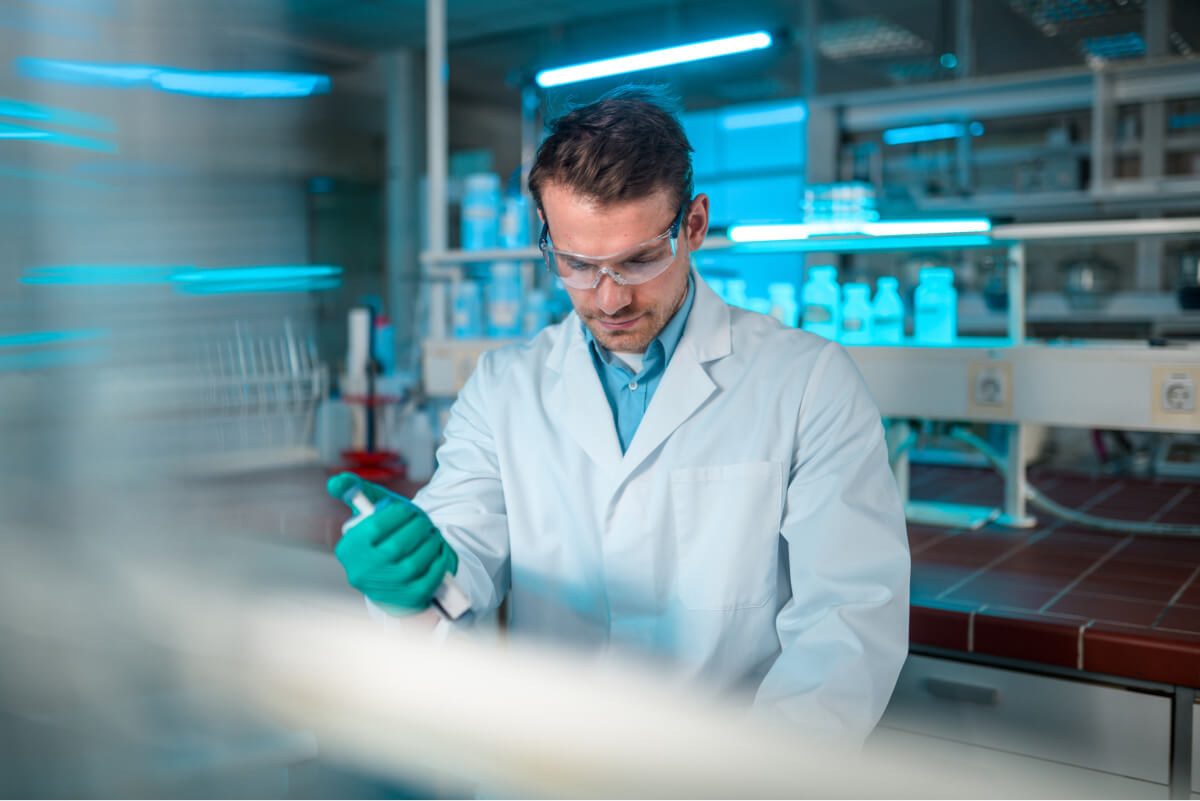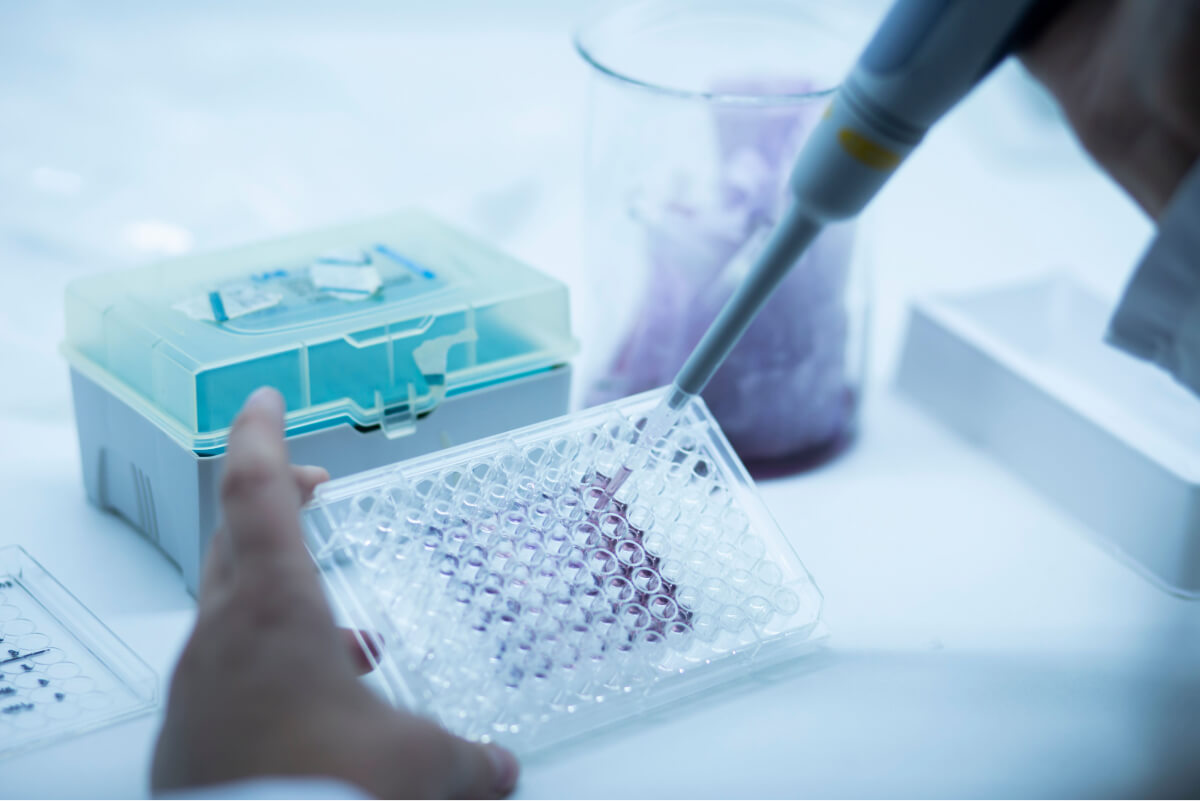Blogs
5 Challenges to the Biotech Journey and How to Overcome Them
May 2024
Biopharmaceutical drugs like monoclonal antibodies (mAbs) and bispecific antibodies can achieve heightened specificity and potency over small molecules thanks to their macromolecular architecture, which allows for the structural complexity necessary for precise targeting.1 This macromolecular structural complexity and large size also confer manufacturing challenges, particularly in process development.
Overcoming the myriad challenges inherent in process development is paramount for biotech firms to successfully bring innovative therapies to market. Therapeutics companies need to identify and mitigate potential obstacles, ensuring scalability, regulatory compliance, consistency, and cost-effectiveness at every stage. To do this, they must streamline their processes, accelerate timelines, and ultimately deliver life-changing therapies to patients in need. With Wheeler Bio as a trusted partner, overcoming the challenges of process development becomes not only achievable but also a catalyst for success.

The 5 Challenges in Early-Phase Process Development
In the dynamic landscape of biotherapeutic development, emerging biotechs looking ahead to first-in-human clinical trials may encounter a myriad of challenges in process development that can impede progress and delay timelines.
1. Production Parameters
Determining the optimal conditions for production processes, such as cell culture conditions or purification methods, can be challenging due to the need to balance factors like yield, purity, and product quality. Variability in raw materials and biological systems introduces unpredictability, requiring robust control strategies to ensure consistency and reproducibility across batches.
2. Scalability
Transitioning from small-scale laboratory processes to larger-scale manufacturing can introduce variability and efficiency issues. Ensuring that processes are scalable and reproducible is essential for successful scale-up to avoid bottlenecks and inefficiencies.
3. Regulatory Compliance
Meeting regulatory requirements for early-phase process development can be complex. Ensuring that processes adhere to relevant guidelines and standards set by regulatory authorities is critical for advancing to later stages of development and can consume valuable time and resources.
4. Infrastructure
Establishing process development infrastructure involves overcoming a steep learning curve as novel technologies and methodologies are integrated, necessitating investment in expertise to unlock their full potential.
5. Cost
Cost is a significant factor, as efficiency goals must align with budgetary limitations, requiring strategic decision-making to allocate resources optimally and achieve key data and investment milestones. Addressing these challenges demands a holistic approach that combines scientific expertise, technological innovation, and strategic foresight; enabling biotechs to overcome obstacles and accelerate the journey from discovery to delivery.

The Solution: Dedicated focus on an optimized development (pre-GMP) package
Platform processes play a pivotal role in accelerating drug development timelines while maintaining the highest quality standards.
A thoughtful focus on pre-GMP process development can offer biotechs a streamlined pathway from early-phase development to CGMP manufacturing, minimizing the complexities and uncertainties typically associated with this transition. Biotechs can benefit from predefined workflows, optimized protocols, and robust documentation, all designed to meet regulatory requirements and industry best practices. A foundation rooted in consistency, reliability, and compliance, provided by a purpose-built platform tailored for phase I drug development, empowers innovators to accelerate process development, lower costs, and manage risks effectively. This approach ultimately enables the advancement of therapeutic candidates towards commercialization with confidence and efficiency.
Wheeler Bio’s Portable CMC® platform offers a multitude of advantages for biotechs navigating the complexities of drug development. By adopting a platform approach, clients experience reduced costs, as predefined workflows and optimized protocols streamline processes, minimize waste, and eliminate the need for extensive customization. Additionally, the consistency and dependability of a platform process ensures improved process reliability, mitigating the risks that could compromise product quality or regulatory compliance. Perhaps most significantly, a thoughtfully designed platform (pre-GMP package) accelerates development timelines, enabling biotechs to expedite the transition from early-phase development to CGMP manufacturing. A platform approach gives biotechs a competitive edge by unlocking efficiencies that propel their therapeutic candidates toward commercialization with speed and confidence.
Conclusion
The journey from drug discovery to delivery is rife with challenges, yet Wheeler Bio offers innovative solutions to surmount these obstacles and expedite the path to market. By embracing the Portable CMC® platform, biotechs can reduce costs, enhance process reliability, and accelerate development timelines, thereby maximizing their potential for success in the dynamic landscape of drug development. A pre-GMP package not only streamlines process development efforts, but also paves the way for the rapid advancement of life-changing therapies.
Take the first step toward revolutionizing your drug development journey by exploring Wheeler Bio’s comprehensive suite of services and solutions.
References
1. Mitragotri, S., Burke, P. A., & Langer, R. (2014). Overcoming the challenges in administering biopharmaceuticals: Formulation and delivery strategies. Nature Reviews. Drug Discovery, 13(9), 655. https://doi.org/10.1038/nrd4363